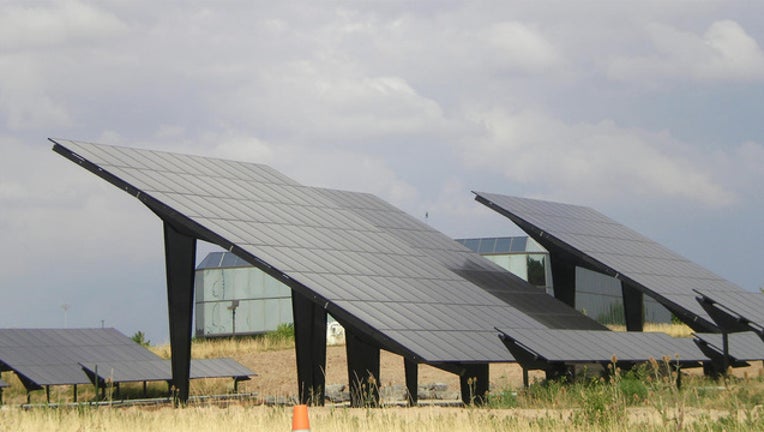Lawmakers to tout renewable energy amendment

(file)
TALLAHASSEE, Fla. (NSF) - A group of state lawmakers launched an initiative Tuesday to educate voters on a proposed constitutional amendment that would give commercial property owners a tax break on renewable-energy devices similar to one given to residential property owners.
Part of the education process will be to ensure voters know the proposal on the August primary ballot isn't tied to a more controversial solar-energy amendment that will go before voters in November.
Sen. Jeff Brandes, R-St. Petersburg, said Tuesday that having the proposal on the Aug. 30 primary ballot will give voters more time to review it, as the November general-election ballot also will include other state amendments and local issues.
Brandes also said going the primary route will keep the proposal, which needs 60 percent approval to pass, away from an anticipated November battle about an amendment backed by a group called "Consumers for Smart Solar." That controversial amendment would put solar-energy regulations into the state Constitution.
"We don't want to be caught in the fray," Brandes said. "This gives us a discussion to have in the August primary, where people can have an independent, well-thought review of our constitutional amendment on a stand-alone basis."
On Tuesday, Brandes, Rep. Ray Rodrigues, R-Estero, and Rep. Lori Berman, D-Lantana, announced that they were launch an effort to travel the state to build support for the proposal (HJR 193), which was approved without opposition by the Legislature. Gov. Rick Scott on March 25 signed an accompanying measure (HB 195) that was needed to put the proposal on the primary ballot.
In a release, Rodrigues and Berman stressed that their bipartisan amendment will help Florida increase solar-energy use and provide tax cuts to more properties.
"Cutting taxes to promote the expansion of solar and renewable energy production is the right policy for our future, and this amendment will provide high-paying jobs for our hard-working families," Berman said in a prepared statement.
If approved by voters, the proposal would exempt the assessed value of solar and renewable energy devices installed on commercial and industrial property. The proposal is intended to expand for 20 years an exemption that is already provided to residential property owners.
Under state law, a renewable device collects solar energy, wind energy or energy derived from geothermal deposits.
The proposal has drawn support from the Florida Retail Federation, the Florida Restaurant & Lodging Association, The Nature Conservancy and the Southern Alliance for Clean Energy.
The Southern Alliance for Clean Energy, meanwhile, is a leading opponent of the Consumers for Smart Solar amendment on the November ballot. Susan Glickman, Florida director for the Southern Alliance for Clean Energy, said she expects voters will be able to separate the two alternative-energy proposals.
"Because it's a primary, voters tend to be more informed, and we will have a pretty good idea of who's going to show up," Glickman said. "On the other hand, people will not start paying attention to the November ballot until the fall. And the utility backed initiative (Consumers for Smart Solar) will have to compete with the intense noise of the presidential campaign."
Typically, fewer voters turn out for primaries than general elections. In 2012, the last presidential election cycle, the primary turnout in Florida was 20.5 percent, while 71.5 percent of the state's voters went to the polls for the general election. Four years earlier the primary drew 17.7 percent, and the general election attracted 75.2 percent.
The Consumers for Smart Solar proposal, backed by major utilities, would generally maintain the status quo in allowing Floridians with solar equipment on their property to sell energy to power companies.
The amendment was introduced in July after a separate amendment, backed by a group known as "Floridians for Solar Choice," was proposed to allow businesses to generate and sell up to two megawatts of power to customers on the same or neighboring properties. The Floridians for Solar Choice proposal, which received financial backing from the Southern Alliance for Clean Energy, ultimately failed to receive enough petition signatures to get on the 2016 ballot.
Consumers for Smart Solar isn't taking a stance on the August primary proposal.
"Our group was created solely to support and pass the amendment we are proposing and will be on the 2016 ballot," Consumers for Smart Solar spokeswoman Sarah Bascom said in an email. "We will not take a position on any legislation, as that is not our role."
Information taken from The News Service of Florida.

